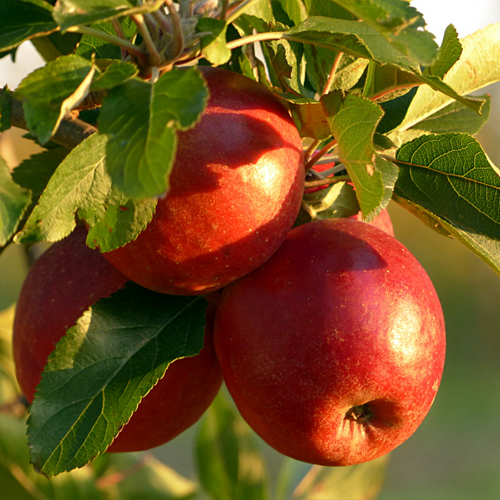What you must remember :
- Constipation is characterized by a frequency of bowel movements less than 3 times per week, accompanied by hard stools that are difficult to pass.
- It is common during pregnancy and affects both expectant mothers commonly subject to this disorder and those who did not suffer from it before their pregnancy.
- It results from several physiological and hormonal factors that intervene in the body of the pregnant woman.
- Constipation during pregnancy goes well beyond simple discomfort and can pose potential health risks for the mother-to-be and the baby.
- Many solutions exist to relieve constipation during pregnancy.
Pregnancy is a time of big change in a woman's life, but it can also bring its fair share of challenges, including digestive issues such as constipation . It is characterized by a frequency of stools less than 3 times per week , accompanied by hard stools that are difficult to pass. Please note that many pregnant women face this uncomfortable condition, so you are not alone in this situation. This common phenomenon is linked to the multiple changes that occur in the pregnant woman's body and which can affect her digestive system.
Why is constipation common in pregnant women?
Constipation is common during pregnancy and affects both expectant mothers commonly subject to this disorder and those who did not suffer from it before their pregnancy. It results from several physiological and hormonal factors that intervene in the body of the pregnant woman. First, hormones produced during pregnancy, such as progesterone, can slow down muscle contractions in the intestine, leading to slower digestion and stagnant stools. Additionally, the increased size of the uterus puts pressure on the intestines, causing compression that can make passing stool more difficult. Ongoing hormonal and physiological changes can also affect intestinal motility, leading to increased water absorption in the stool, making it harder and more difficult to pass. Some pregnant women may also be more sensitive to changes in their diet or physical activity level associated with this particular period of life, which may also contribute to constipation. Finally, prenatal supplements (prenatal vitamins and iron-containing supplements) often recommended during pregnancy to support the health of mother and baby, can sometimes contribute to constipation. Iron supplements, in particular, can harden stools and make it more difficult to pass.
What are the symptoms of constipation in pregnant women?
Although it may seem harmless, constipation during pregnancy can be a source of discomfort and embarrassment. To take better care of yourself, it is essential to recognize the symptoms of constipation during pregnancy. Here are some examples of the main symptoms to watch out for when you are pregnant:
- Reduced bowel movement frequency (less than 3 per week)
- Difficulty passing stools
- Hard, dry stools
- Feeling of incomplete stools after going to the toilet
- Bloating and gas
- Pain and cramps
- Hemorrhoids
However, in the event of intense, persistent or unusual pain, do not try to self-diagnose. Consult your doctor, midwife or other qualified healthcare professional to answer your questions, provide assistance and provide care if necessary.
What are the risks associated with constipation in pregnant women?
Constipation during pregnancy goes well beyond simple discomfort and can pose potential health risks for the mother-to-be and the baby . It is important to be aware of these risks and take preventive measures to protect your well-being and that of your child. Here is a non-exhaustive list of the main risks associated with constipation during pregnancy.
First of all, abdominal discomfort and pain caused by constipation can make pregnancy less pleasant, thus impacting quality of life. Additionally, dehydration can be exacerbated by constipation. Indeed, the body of pregnant women has a higher than average need for water and constipation, by causing water retention in the stools and reducing the volume of fluid in the colon, aggravates this problem. Constipation can also lead to the development of hemorrhoids, enlarged veins around the anus and rectum, leading to unpleasant pain and itching during pregnancy. Finally, persistent constipation can lead to excessive straining during defecation, increasing the risk of perineal tears during childbirth. Constipation can also cause excessive muscle tension in this sensitive area. Overall, in the event of persistent symptoms, do not hesitate to consult a health professional for appropriate advice and rapid relief.
What solutions to prevent and relieve constipation during pregnancy?
Constipation during pregnancy can be avoided or alleviated with effective preventative measures. Here are some solutions to maintain optimal intestinal transit throughout your pregnancy:
1 – Adopt a balanced diet rich in fiber
To have a diet rich in fiber and relieve your constipation, think about the famous five fruits and vegetables a day! Indeed, dietary fiber is essential for the proper functioning of the digestive system. So remember to include 30 to 35 g of fiber per day in your diet. To do this, eat enough foods rich in fiber such as fruits and vegetables (raw and cooked), whole grains, oilseeds (1 handful per day) and legumes.
2 – Ensure good hydration
Drinking enough water is essential to preventing constipation. Dehydration can cause hard stools due to too much water being absorbed from the stool in the large intestine, making it more difficult to pass. Make sure you drink at least 1.5 to 2L of water minimum per day to maintain good hydration. So, remember to take your bottle with you everywhere!
3 – Take a course of natural probiotics
During pregnancy, hormonal imbalances can disrupt the gut microbiota and lead to gut dysbiosis , which can lead to digestive issues, including constipation. Probiotics are beneficial live microorganisms that help restore and maintain the balance of intestinal flora. By consuming natural probiotics , pregnant women can improve the diversity and abundance of good bacteria in their gut, promoting more regular digestion and better intestinal motility.
At DIJO, we were keen to create the essential probiotics , a treatment which aims to repopulate your intestines with good bacteria , and strengthen your intestinal microbiota. These quality bacteria promote regular intestinal transit and improve the consistency of stools, to relieve constipation during pregnancy . If you are subject to chronic constipation, we recommend a 3-month course. This will only be beneficial for you and your child!
4 – Exercise regularly
Although not routinely possible for all pregnant women, exercise is beneficial in many ways during pregnancy, including preventing constipation. Exercising stimulates intestinal transit by promoting muscle contractions in the intestine. Opt for activities tailored to your health and comfort level, such as walking, swimming or prenatal yoga. If necessary, do not hesitate to seek the advice of your doctor or gynecologist to ensure the compatibility of the practice with your situation.
5 – Avoid stimulant laxatives
Although some laxatives can be used occasionally to relieve constipation, it is best to avoid stimulant laxatives during pregnancy. Indeed, this type of laxatives (medications or plants) can cause uterine contractions, or even a miscarriage. Therefore, favor so-called “ballast” laxatives, which lead to an increase in hydration and volume of stools, or so-called “osmotic” laxatives, which increase the water concentration of stools. In general, during your pregnancy, be sure to seek medical advice systematically before using laxatives.
6 – Don’t hesitate to talk about it with your doctor
If you suffer from persistent constipation despite taking preventive measures, do not hesitate to talk to your doctor. He will be able to recommend solutions adapted to your situation and reassure you about the safety of natural remedies to use during pregnancy.
When should you consult in case of constipation in pregnant women?
To help you better understand constipation, here is a summary table of good behavior to follow: 
Image source: https://www.vidal.fr/immobiliers/astronomie-intestins/constipation-adulte/que-faire.html



















